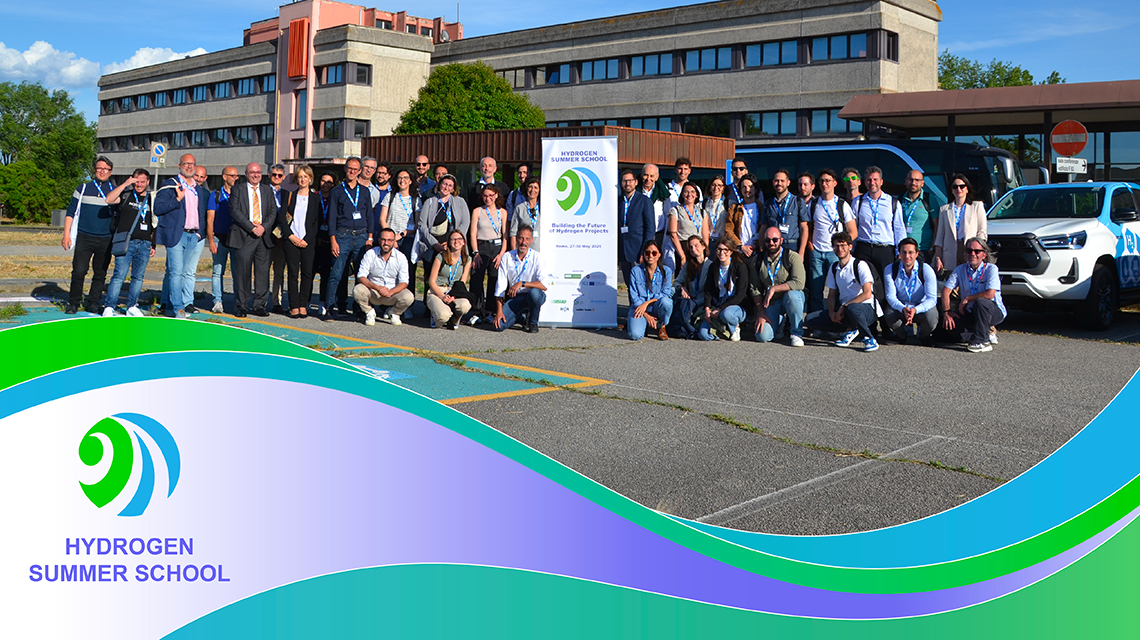Italian National Agency for New Technologies, Energy and Sustainable Economic Development

Energy: Hydrogen, a summer school for training professionals
About 50 participants from the academic and corporate worlds attended the fourth edition of the Hydrogen Summer School, organized by ENEA - Department of Energy Technologies and Renewable Sources (TERIN), in collaboration with the Italian Association of Chemical Engineering (AIDIC) and the Department of Chemical Engineering Materials Environment" of Sapienza University (DICMA), to examine hydrogen's potential as a pivotal clean energy carrier and analyse opportunities and critical issues in its supply chain.
"Implementing hydrogen technology requires adjustments to existing infrastructures and the development of new technologies but also new professional roles. This is the reason why we continue to pursue the initiative of a training school offering 360-degree skills" pointed out Claudia Bassano at ENEA - TERIN, who was in charge of organizing the Hydrogen Summer School, together with Paola Gislon and Carla Menale. "The fourth edition of the Hydrogen Summer School confirms the strong interest from both industry and academia in hydrogen as a key energy carrier for achieving decarbonization goals outlined in the Italian PNIEC, National Hydrogen Strategy, and European roadmaps. But as a carrier and not a single technology, the sector is articulated in a very extensive supply chain, which requires knowledge from various sectors to manage effectively " the researchers said.
The school was held at the ENEA Casaccia Research Center (Rome) and featured more than 20 lecturers from academia and industry, who addressed all topics related to the hydrogen supply chain, from production to transport, storage to end uses. The training program combined specialized classroom lectures with interactive group work on topics, processes and technologies. During the group work, students were the protagonists of a realistic and engaging simulation: divided into teams, they played the different actors in the energy transition - from government to industries, from NGOs to technology startups - and engaged in a multilateral policy debate to design solutions and address unforeseen challenges.
In particular, a project that is set to enter its executive phase shortly has been thoroughly examined, namely the Hydrogen demo Valley, that will be built at the ENEA Casaccia Research Center, an initiative that, in addition to representing the first national Hydrogen Valley, will also serve as a technology showcase and training facility, as well as technology transfer for companies.
"Skills development is a priority to be addressed in the path of energy transition; ENEA, through the TERIN Department, in addition to doing research and innovation, is committed to accompanying young people along a training path toward the new professional skills required by the market. Several, in fact, are the topics that will be the subject of the next training schools, in addition to hydrogen we will deal with sustainable mobility and bioenergy," saids Giulia Monteleone, head of ENEA TERIN.
